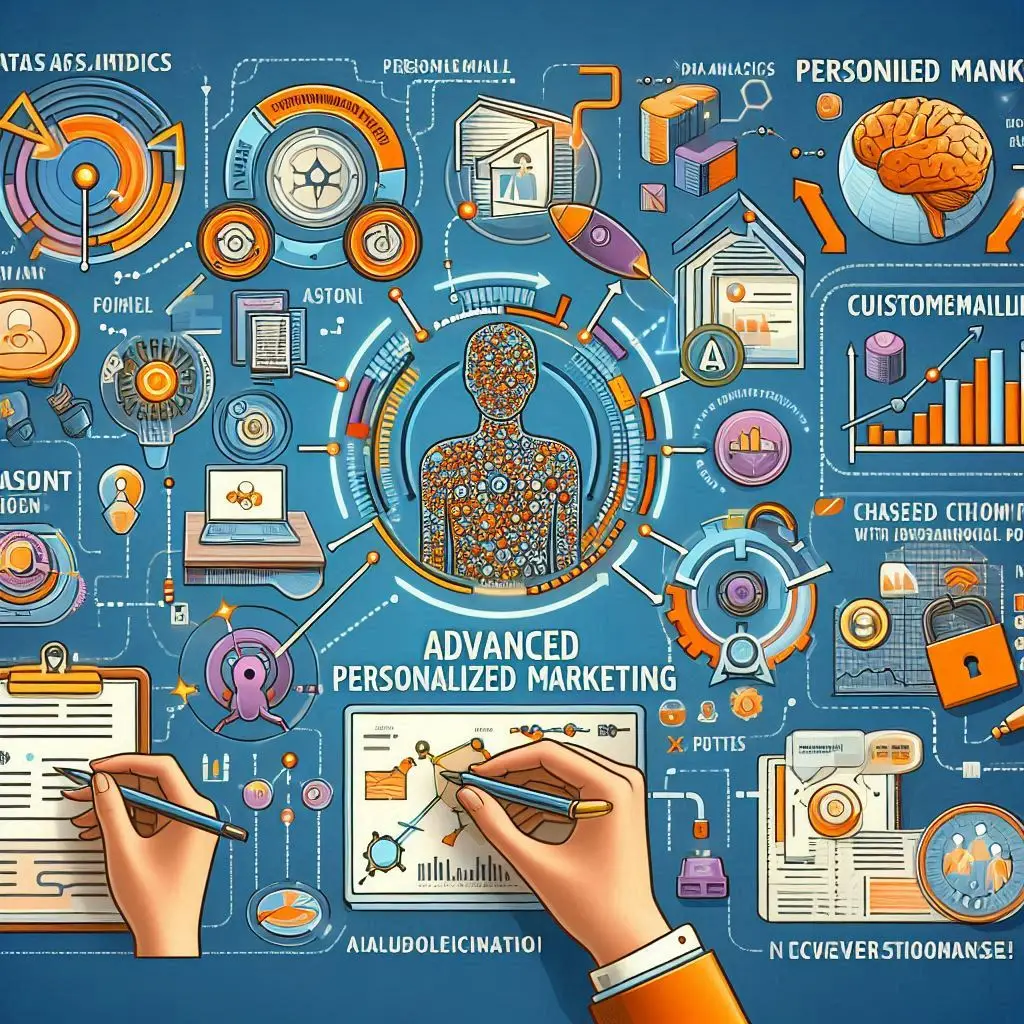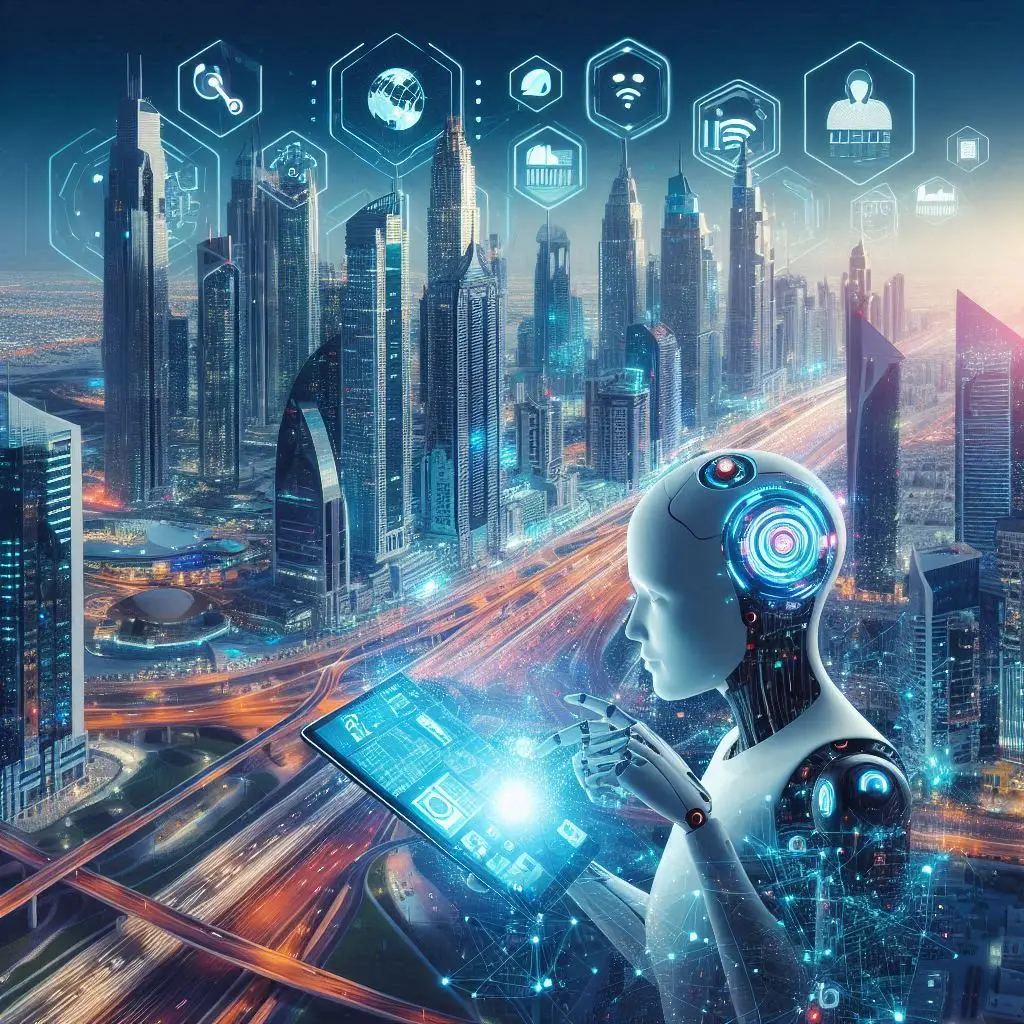Digital marketing is one of the most rapidly growing and evolving segments of modern business development during the past few decades. From humble beginnings of sending out blank emails to the highly scientific and complex approaches of today’s digital marketing, the progress has been phenomenal. Enter Generative AI: an innovative discovery that is set to transform digital marketing even more in the future. But what exactly is Generative AI, and how has it redefined the possibilities for the marketing domain in business companies?
Generative AI is the kind of artificial intelligence that can create new content, ideas, or even solutions on its own using the patterns and data fed to it. Generative AI is different from most other types of AI, as it can produce unique results and will prove to be very useful for tasks in which creativity is needed.
Traditional AI works according to a set of instructions and accomplishes certain activities or chores. On the other hand, Generative AI applies deep learning techniques like GANs and transformers to study the content and generate new results that may be close to human creativity. This makes them versatile and adaptive for numerous uses in different industries, including digital marketing.
Generative AI has emerged as an indispensable tool in digital marketing in recent years. It can function in all areas of the field, from creating content to managing personalization to conducting predictive analytics.
Developing content that is interesting and would be useful to the target audience is one of the most important steps in digital marketing. One of the most significant aspects of generative AI is that it generates high-quality content, images, and even videos that save time for human marketers.
It means that personalization has never been more important. With the help of generative AI, clients can be targeted and offer extremely relevant information on the basis of data analysis, which helps to improve the overall communication with the client.
Generative AI provides the foundation for predictive analytics, which focuses on consumer behavior, campaign performance, and future trends. Therefore, profitability and return on investment (ROI) will be improved.
The generative AI is capable of writing engaging text for a blog, a status update, or even an advertisement, an email, and much more. Writing assistants, such as OpenAI’s GPT-3, can create text that sounds like a human wrote it and is interesting to readers.
Another field that Generative AI is good at is the development of graphic and image content. AI models can create designs that reflect the image of the brand and would be appealing to the target market thereby helping the marketer keep the image of their brand intact.
In the current generation, videos are one of the most common features in online advertising. In relation to this, generative AI can help in creating excellent videos since it can write scripts, design storyboards, and even produce footage of a video. Thus, it simplifies the process of video making and, therefore, reduces the costs.
Unlike traditional marketing, generative AI can matrix individual likes and dislikes as well as their various actions to design extremely appealing campaigns. As a result, the right content is delivered to the right audience at the right time, increasing engagement and conversion rates.
By utilizing artificial intelligence, automated systems, such as chatbots and virtual assistants, make customer service more effective by responding immediately to the customer’s actions. Utilizing natural language processing in these tools creates a positive experience for the customer and can increase their loyalty.
Using Generative AI, a customer journey map can be created that displays all significant interactions. As a result, marketing campaigns can be more effectively integrated and efficient, and areas for improvement can be identified.
Generative AI models have the capability of providing predictions on some of the consumers’ behaviors based on previous records. It helps the marketing department to be able to predict the needs and preferences of audiences, thus leading to more effective and preventive marketing strategies.
Marketing campaigns which are managed through generative AI can be fine tuned to achieve their best since generative AI is capable of constant monitoring of operations data and performance data. Making use of such an approach guarantees that the activities stay influential and responsive to the market realities.
Being updated with market change is a key factor that must be put into consideration by any business organization. By using generative AI, businesses can sort through large volumes of data and find out the new trends that might be beneficial for the particular enterprise and remain attractive to the market.
Small Businesses are also experiencing the advantages of Generative AI. For instance, local boutiques integrate AI tools in managing their social media content and interacting with customers, thus competing directly with larger counterparts.
When it comes to data privacy, Generative AI poses a very large number of problems. Marketers must protect consumer data appropriately and follow legal frameworks such as GDPR to gain and retain trust from them, as well as avoid legal consequences.
Transparency, accountability and fairness are among some of the concerns that need to be dealt with in a bid to enhance the ethical use of AI. Companies should openly declare their usage of artificial intelligence and try to avoid adverse effects for specific populations.
Another disadvantage of extensive use of AI systems is that systems are only as good as their training data, meaning that bias held in data would be held in the system as well. Such biases must be identified and addressed to make sure that the particular solution implemented by AI works and is non-discriminatory.
With Generative AI still growing, there are more advanced technologies and various uses being developed. These are some of the trends considered to revolutionize digital marketing, additionally as artificial intelligence, virtual reality experiences, and cutting-edge customer segmentation.
One can easily predict that the advancement of Generative AI in digital marketing will be promising in the future. The ever-evolving nature of the field of AI guarantees marketers even better tools and techniques that will enable them to reach out to their audience in ways not seen before.
When it comes to evaluating the effectiveness of Generative AI solutions, the most effective way is to monitor KPIs that include engagement rates, conversion rates and ROI ratios. Make it a habit to conduct a check on these metrics so that your AI-driven strategies are impactful.
With the help of Generative AI, new positions are appearing in the sphere of marketing, including AI specialists and data analysts. AI is currently seen as a tool, so marketers need to learn new skills in order to start being able to complement it.
Even though AI is capable of performing numerous operations and has been successfully integrated into many business fields, it is impossible to replace human creativity and intuition. Therefore, the future perspective of marketing puts the focus on autonomous cooperation with AI and human abilities to enhance the process.

